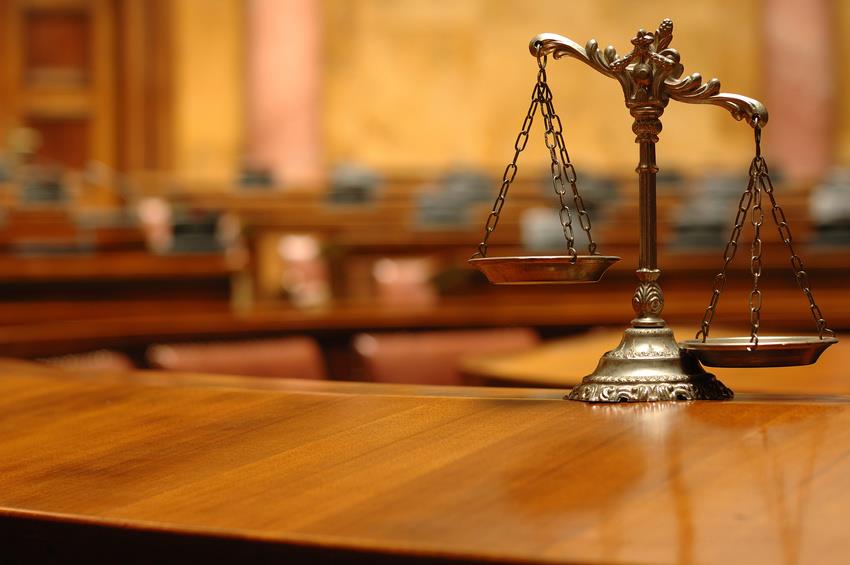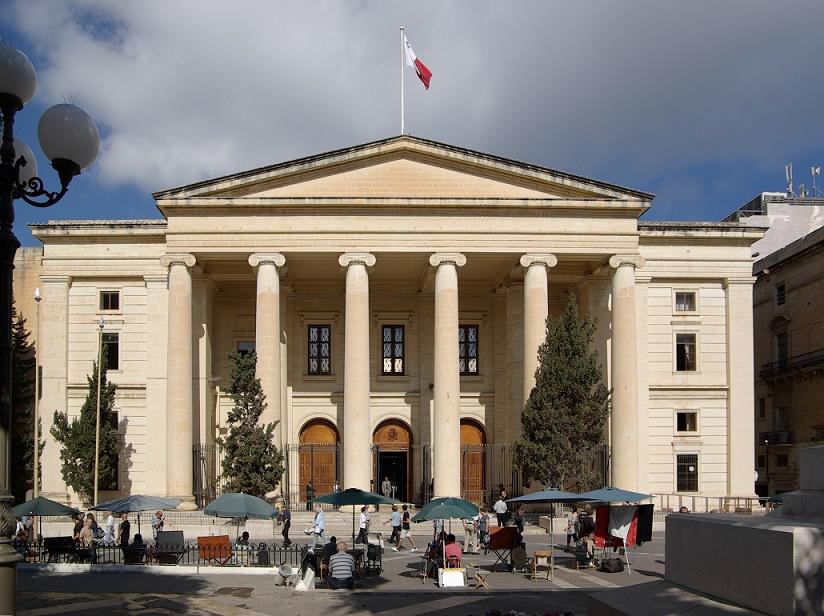When push comes to shove cohorts of the Maltese judiciary do nothing more than rubber-stamp any abuse by the powerful, according to Giovanni Bonello, former European Court of Human Rights judge, who believes the last wall of defence that should protect democracy and the rule of law ought to be the courts.
Speaking about his latest book, Misunderstanding the Constitution: How the Maltese judiciary undermines human rights, Bonello tells The Malta Independent on Sunday that the Maltese judiciary has not been very supportive of human rights from day one, from when they were introduced in 1961.
Bonello clarifies that when he refers to the judiciary he does not mean that all judges and magistrates are gutless towards those in power. “There are some very good and courageous people, with great integrity, but there are some who are just there to rubber-rubber-stamp whatever the government expects them to rubber-stamp.”
When asked if this was because of the way judiciary appointments are made in Malta, Bonello confirms this is one of the main reasons. In fact, he notes that Malta is the only democratic country in the EU where judges are appointed by the Prime Minister.

Bonello explains that in the rest of democratic Europe, the appointment of judges happens in two ways: the British system, whereby judges appoint other judges, or the Continental system, which cannot be applied to Malta because of its small size.
“Before 2005, the UK system was like ours, in fact we copied their system,” Bonello says. He continues to add that “we are still using a system whereby every magistrate and judge owes his job to the Prime Minister, as well as any promotion.
“Can you imagine someone who wants a promotion, an increase in their pension, who wants to be chosen to sit on commissions or boards after they retire, all this depending on the goodwill of the same person they are supposed to control? It is absolutely crazy.
“Some administrations choose their cronies but also good ones, others choose only their cronies. The judiciary is there to provide checks and balances, but then these checks and balances are left to persons chosen by the Prime Minister.”
Asking about Minister for Justice Owen Bonnici’s statement to The Malta Independent on Sunday, that the government will have no say in judicial appointments in the upcoming reform, Bonello exclaims that “the change will be purely cosmetic because the judiciary is now so packed with friends of friends that it will just keep self-perpetuating.”
In Malta, he says that the judiciary is filled “with politically-exposed appointees” so the problem will keep on going for a long time to come. Out of the last 17 appointments, 16 were all relatives of party politicians, cronies of ministers or are somehow political intertwined, Bonello notes. “Now they have started a process that in 50 years times will still be a problem. It has now a become a long-term problem for which I can see no solution.”

90 per cent of cases that go the ECHR are upheld
Under the European Convention on Human Rights, an applicant cannot take a complaint to the European Court of Human Rights unless he has first exhausted all remedies under domestic law.
The reason for this is because an international court only works by invading the sovereignty of the European states that recognise its jurisdiction. Before trespassing on national sovereignty, the Strasbourg Court first allows the state the most ample opportunity to put things right, to avoid “foreign interference” into its sovereignty kicking in, Bonello explains in his book.
It appears, however, that special exceptions have been made in Strasbourg in cases against Malta, Bonello explains. He goes on to say that “lately, in the area of some particular human rights, if there is a case from Malta, the European Court says, come straight to Strasbourg, do not waste time exhausting domestic remedies which are no remedies at all.”
Bonello says that this exception is often made for Malta and it is not because Strasbourg needs more cases. In fact, Bonello says they have a severe backlog of cases but “the situation of obtaining adequate redress in Malta in several areas is so bad that Strasbourg often does not insist on a step the Court is otherwise very adamant on.”
“This is the certificate of inefficiency and lack of effectiveness of the Maltese remedies, in protecting some human rights. The ECHR tells the victims: you cannot, in some violations, expect human rights protection from the Maltese courts.”
In fact, 90 per cent of Maltese human rights cases that end up in the Strasbourg Court and are there examined on the merits, have found that Malta is in breach of the victim’s human rights. Bonello explains that this statistic does not apply to those cases dismissed on formalities.
“Not even Russia or Turkey have so many human rights cases upturned, percentage wise. The reason behind this is that the government is allowed to disregard human rights because of a judiciary that often just rubber-stamps."

‘In Malta it seems the more outrageous your behaviour is, the more popular you are’
Bonello, in 2013, was also President of the Commission for the Holistic Reform in the Field of Justice, which issued a report which became known as the "Bonello Report”. The report put forward a number of measures to reform the judicial system..
When asked his opinion on the claim that many measures of the report were not implemented he said, “Before my commission presented the report I though that parts of it would not be implemented. I am not referring to Minister Owen Bonnici, in particular, but politicians in general will pick and choose what is easiest and most popular to implement. Not none of it was implemented, and we should be thankful for the parts that were, but not a particularly large amount.”
One of the measures suggested in the report, and that has been widely debated, is the separation of the Attorney General’s functions. Bonello, in fact notes that the Attorney General’s position is “totally untenable.”
Bonello makes reference to Israel where Prime Minister Benjamin Netanyahu is being impeached by the Attorney General there for corruption. He also mentions the ongoing reports about Robert Mueller and President Donald Trump in the US – situations unthinkable in Malta.

The comparison then finds its way to Malta with Bonello loosely explaining how the Attorney General wears two hats. “The Attorney General in Malta is in the morning advising his client the Minister and then in the afternoon he has to decide whether to put the Minister his client in jail and then in the morning he is advising him again.”
He goes on to say that this situation possibly exists only in Malta. The Attorney General is the director of prosecution, which means he has responsibility of upholding the rule of law but then he is also the personal advisor to the Ministry.
“We know the result, who wins? I am your client, you are going to persecute me your client?” Bonello rhetorically asks.
“In Malta the more outrageous your behaviour is the more popular you are,” Bonello concludes. He gives the example of a Minister of the 1980s, who he calls “the most corrupt, in your face, politician," saying that in every election he gained even more votes.
“The more scandals that were exposed in relation to this minister, the more votes he gained in the next election.”